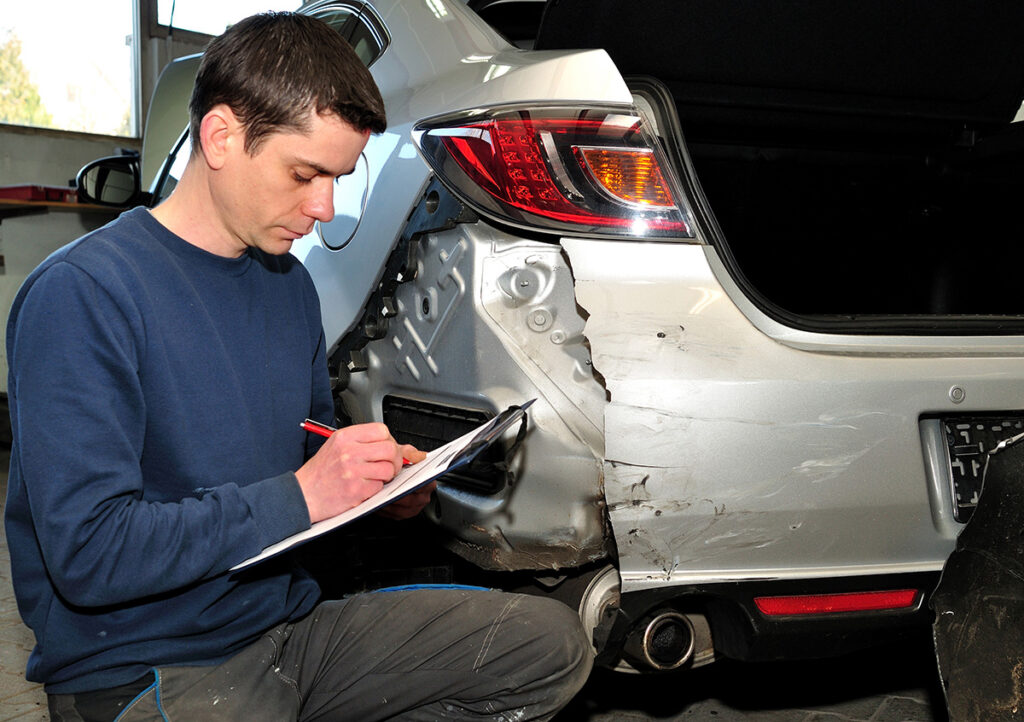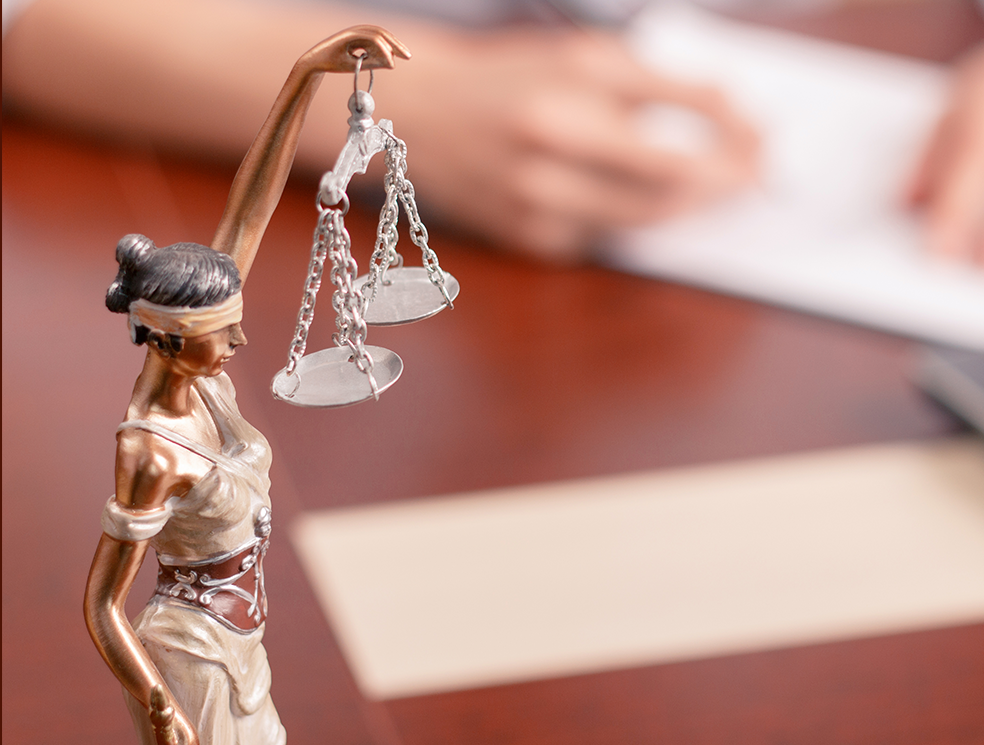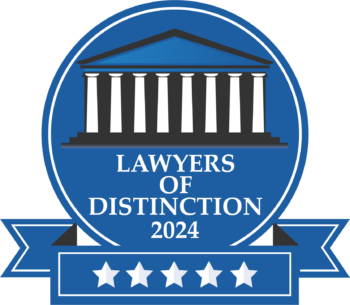When you think of vehicular accidents, the first thing that usually comes to mind is a car crash, but many personal injuries can result from different types of vehicular accidents. Whether it’s a collision between two cars, a driver hitting a pedestrian, or an accident involving a motorcycle or bicycle, personal injuries can range from minor bruises and cuts to serious life-altering conditions.
No one ever expects to get into an accident while on the roads. But unfortunately, vehicular accidents, especially in Florida, happen far too often, and when it does, the results can be devastating for those involved. From broken bones and head trauma to spinal cord damage, the effects of these accidents are both physically painful and emotionally taxing.
The good news is that victims of vehicular accidents may be eligible for compensation if someone else’s negligence caused their injury. Understanding the different types of personal injuries that can occur due to vehicular accidents will help victims better prepare for what may lay ahead regarding recovery and possible legal action if necessary.
What is Personal Injury?
Personal injury refers to any physical, mental, or emotional harm caused to an individual due to someone else’s negligence, intentional actions, or strict liability. It encompasses many accidents, incidents, or situations where a person suffers harm or injury.
Personal injury cases can arise from various circumstances, including car accidents, slips and falls, medical malpractice, product liability, workplace accidents, and more. In these cases, the injured party may be entitled to seek compensation for their damages, such as medical expenses, lost wages, pain and suffering, and other related losses.
Personal Injury and Vehicular Accidents
Personal injury in vehicle accidents refers to the harm or injuries suffered by individuals involved in motor vehicle collisions. These accidents can include car accidents, truck accidents, motorcycle accidents, pedestrian accidents, and more. Vehicle accidents can result in many injuries, from minor cuts and bruises to severe and life-altering conditions.
It is important to establish fault or negligence regarding personal injury in vehicle accidents. The at-fault party may be held liable for the injuries and damages caused to the victims. This involves determining who was responsible for the accident, whether due to reckless driving, distracted driving, speeding, drunk driving, or any other form of negligence.
In personal injury cases involving vehicle accidents, victims may seek compensation for various damages, including medical expenses, lost wages, pain and suffering, property damage, and rehabilitation costs. Victims must gather evidence, such as accident reports, witness statements, medical records, and photographs, to support their claims.
To navigate the legal process and maximize their chances of receiving fair compensation, it is advisable for individuals involved in personal injury cases stemming from vehicle accidents to seek the assistance of an experienced personal injury attorney.
An attorney can provide guidance, protect their rights, negotiate with insurance companies, and represent them in court if necessary.
Overall, personal injury in vehicle accidents is a complex area of law that aims to ensure that individuals who have been injured due to the negligence of others receive the compensation they deserve to help them recover and move forward with their lives.
Importance of Understanding the Common Types of Personal Injuries in Vehicular Accidents
Understanding the common types of personal injuries in vehicular accidents is paramount for various reasons. It allows individuals to be aware of the potential risks and consequences of such accidents and helps them take necessary precautions to protect themselves and others on the road.
Here are some key reasons why understanding these injuries is crucial:
- Safety Awareness: Knowing the common types of injuries in vehicular accidents can raise awareness about the potential risks and dangers involved. It encourages individuals to practice safe driving habits, follow traffic rules, and take necessary precautions to prevent accidents.
- Prompt Medical Attention: Recognizing the signs and symptoms of common injuries allows individuals to seek immediate medical attention after an accident.
Early diagnosis and treatment can significantly improve the chances of recovery and minimize long-term complications.
- Legal Understanding: Understanding the types of injuries commonly associated with vehicular accidents can help individuals navigate the legal aspects of personal injury claims. It enables them to provide accurate information to their attorneys and insurance companies, supporting their compensation claims.
- Rehabilitation and Recovery: Awareness of common injuries helps individuals better prepare for recovery. It allows them to anticipate the need for specific medical treatments, rehabilitation programs, or therapy sessions to regain their physical and emotional well-being.
- Support and Advocacy: Understanding the common types of injuries helps individuals connect with support networks and advocacy groups dedicated to helping accident victims. They can access valuable resources, information, and guidance to aid their recovery and legal journey.
By understanding the common types of personal injuries in vehicular accidents, individuals can be better equipped to protect themselves and others, seek appropriate medical attention, navigate the legal process effectively, and work towards a full recovery. It promotes safer road practices and ensures that individuals receive the necessary support and compensation they deserve after an accident.
Common Cause of Vehicular Accidents
Vehicular accidents can occur due to various causes, and understanding the common causes is essential for promoting road safety and preventing accidents.
Here are some of the most common causes of vehicular accidents:
- Distracted Driving: Distracted driving is a leading cause of accidents. This includes texting, talking on the phone, eating, or using electronic devices while driving. Taking your eyes off the road for a few seconds can have disastrous consequences.
- Impaired Driving: Driving under the influence of alcohol or drugs significantly impairs judgment, reaction time, and coordination, increasing the risk of accidents. Intoxicated drivers have reduced control over their vehicles and are more likely to cause severe collisions.
- Speeding: Excessive speed reduces the driver’s ability to react to sudden changes on the road and increases the severity of collisions.
- Reckless Driving: Aggressive driving behaviors such as tailgating, weaving through traffic, or disregarding traffic signals and signs puts everyone on the road at risk. Reckless drivers are more likely to lose control of their vehicles and cause accidents.
- Fatigue: Fatigue can impair a driver’s ability to stay alert and focused on the road. Falling asleep behind the wheel or experiencing drowsiness increases the likelihood of accidents, especially on long journeys or during nighttime driving.
- Weather Conditions: Adverse weather conditions such as rain, snow, fog, or ice can create hazardous road conditions and reduce visibility, increasing the risk of accidents. Drivers need to adjust their speed and exercise caution to prevent collisions.
- Poor Vehicle Maintenance: Neglecting regular vehicle maintenance can lead to mechanical failures such as brake failure, tire blowouts, or steering issues, which can result in accidents. Proper care and regular inspections are crucial for safe driving.
- Inexperienced or Elderly Drivers: Inexperienced drivers, including teenagers, may lack the necessary skills and judgment to handle challenging driving situations. Similarly, elderly drivers may experience diminished cognitive and physical abilities, making them more prone to accidents.
- Aggressive Driving: Aggressive driving behaviors such as tailgating, frequent lane changes, or engaging in road rage can escalate situations and lead to accidents. Maintaining a calm and patient demeanor while driving is essential for road safety.
- Failure to Obey Traffic Laws: Disregarding traffic signals, running stop signs or red lights, or failing to yield the right-of-way are common causes of accidents. Adhering to traffic laws and respecting other drivers’ rights is crucial for preventing collisions.
Understanding these common causes of vehicular accidents can raise awareness, promote safe driving practices, and encourage individuals to take necessary precautions on the road.
By addressing these causes and implementing preventive measures, we can work towards reducing accidents and creating safer road environments for everyone.
Types of Injuries from Vehicular Accidents
Head and Brain Injuries
Head and brain injuries are the most common injuries sustained during vehicular accidents. A head or brain injury is any trauma to the skull or brain, ranging from mild to severe. Head and brain injuries can occur due to a direct impact, a rapid change in momentum, or an object penetrating the skull.
The symptoms of a head or brain injury may include dizziness, confusion, nausea, headaches, blurred vision, slurred speech, difficulty hearing and understanding language, weakness on one side of the body, loss of consciousness for several seconds or minutes, and coma.
In more severe cases, permanent damage to the brain affects physical abilities and cognitive functioning. Victims who suffer from head and brain injuries typically require long-term medical care to recover fully from their trauma. This may include physical therapy to regain strength and mobility and speech therapy to restore communication skills. Cognitive rehabilitation therapies, such as occupational and cognitive behavior therapies, can also help victims recover from traumatic events associated with their accidents.
Victims who have suffered head and brain injuries will often need lifelong treatments and medications to manage their condition. Those affected by these types of injuries need to seek medical attention immediately after an accident to receive treatment for any potential complications associated with their injury.
Spinal Cord Injuries
The spinal cord is a vital part of the human body responsible for sending signals from the brain to the rest of the body. As such, an injury to the spinal cord can have devastating consequences and can leave a person permanently disabled. Spinal cord injuries are among the most common personal injuries in vehicular accidents.
A spinal cord injury occurs when damage to any part of the vertebrae or surrounding ligaments and muscles. This type of injury can occur in any motor vehicle accident, including car crashes, motorcycle collisions, and truck wrecks. Common symptoms associated with a spinal cord injury include pain or numbness in limbs, loss of sensation, difficulty walking or standing, and paralysis.
An individual should seek medical attention immediately after an accident to properly diagnose a spinal cord injury. The doctor will usually perform tests such as X-rays or MRIs to determine if there is any damage to the spine. If there is evidence of nerve damage, further tests may be necessary to better understand how severe the injury is and what treatment might be needed.
Treatment for a spinal cord injury often includes medications and physical therapy to help relieve pain and improve mobility. Surgery may sometimes be necessary to repair any damaged nerves or vertebrae. Depending on how severe the damage is, it may not be possible for an individual to recover from a spinal cord injury fully, and they may need long-term support from family members or specialized care centers to manage their condition.
Neck and Back Injuries
Injuries to the neck, or whiplash, can occur when a vehicle is struck from behind.
This causes the head to be snapped forward and backward with great force, often leading to acute pain, stiffness in the neck area, and headaches. Depending on the severity of the impact, these symptoms can last for days or weeks.
Back injuries are also prevalent in vehicular accidents–ranging from minor soft tissue damage to severe spinal cord injuries.
Soft tissue damage results in muscle strains and tears, resulting in chronic pain and limited mobility if not treated promptly. Severe spinal cord injuries can cause paralysis or death if not treated immediately.
Treatments for neck and back injuries vary depending on the severity of the damage. Rest and physical therapy may be needed for milder cases to help reduce pain and improve mobility.
More serious cases may require surgery or other invasive treatments. In any case, proper medical attention is essential to recover from these types of injuries fully.
Prolonged suffering from neck and back injuries caused by vehicular accidents can have long-term effects beyond physical pain; it can also lead to psychological distress, such as depression and anxiety, which further exacerbate symptoms like insomnia or fatigue.
Therefore, taking preventative measures such as wearing seatbelts while driving or riding in a vehicle and seeking immediate medical attention after an accident is important.
Bone Fractures and Orthopedic Injuries
Moving on from neck and back injuries, bone fractures and orthopedic injuries are other common injuries in vehicular accidents. Fractures are one of the most common types of physical trauma associated with car accidents, especially when the impact is severe.
Fractures can vary in severity, ranging from a minor crack in the bone to a complete break. Orthopedic injuries include damage to the body’s musculoskeletal system, such as tendons, ligaments, and muscles. These types of injuries can result in extreme pain and discomfort for the victim and can lead to permanent disability if not treated properly.
In some cases, victims may suffer both fractures and orthopedic injuries at the same time. This can be especially painful and debilitating because it involves two different injury levels. For example, a person who sustains both a broken arm and soft tissue damage may be unable to move their arm due to the fracture while also experiencing extreme pain due to muscle tearing and inflammation caused by the orthopedic injury. When treating these types of injuries, doctors often prescribe anti-inflammatory drugs or opioids to relieve pain and swelling immediately.
Additionally, physical therapy may be recommended to help restore mobility lost due to fractures or strains caused by an accident. In some cases, surgery may be necessary if the injury is particularly severe or if long-term complications are expected.
Victims of vehicular accidents should always seek medical attention immediately after a collision to assess any potential bone fractures or orthopedic injuries they may have suffered due to the crash.
Early intervention is key to ensuring that these types of injuries do not become more serious over time or lead to long-term disability down the road. Timely treatment will also help reduce recovery time and get victims back on their feet sooner rather than later.
Internal Injuries
Internal injuries are another common type of personal injury in vehicular accidents. These can range from minor to severe and can be caused by blunt and penetrating trauma. In some cases, the extent of internal injuries may not be immediately apparent. Internal organ damage can occur when organs are penetrated by sharp objects or crushed due to blunt force trauma.
Commonly affected organs include the lungs, heart, liver, spleen, and kidneys. Internal bleeding is another serious concern associated with these types of injuries. This occurs when blood vessels are ruptured and blood pools within the abdominal or chest cavity.
Symptoms of internal injuries typically vary depending on their location in the body and severity. Pain is often present in the affected area but may also manifest elsewhere in the body, such as during breathing or coughing if lung tissue is involved.
Other symptoms may include dizziness, nausea, vomiting, confusion, an inability to speak clearly, and a rapid heartbeat or pulse rate. Shock is also a possible complication if there is significant blood loss due to internal bleeding.
Depending on the situation, various treatments may be used to manage internal injuries. Surgery may be necessary for certain types of organ damage, while medication may be used to reduce pain and inflammation or help stop internal bleeding if present.
Blood transfusions could also be necessary in cases involving severe blood loss. In addition to medical treatment for physical damage from the accident, psychological therapy might also be needed to help someone cope with anxiety or other emotional issues after experiencing a traumatic incident like a car crash.
Recovery time varies depending on the injury’s nature and severity but can take days to weeks for minor cases, while more severe ones could require months before full recovery is achieved. It’s important for those who have suffered internal injuries due to a car accident to follow their doctor’s orders closely during this time so they can receive proper treatment and return to optimal health as quickly as possible.
Soft Tissue Injuries
Moving on from internal injuries, soft tissue injuries are the next type of personal injury that can occur in vehicular accidents. Soft tissue injuries refer to damage to muscles, tendons, and ligaments. They cause various symptoms, including pain, swelling, bruising, and decreased range of motion.
Soft tissue injuries can be caused by whiplash, an acceleration-deceleration force that occurs when the head and neck are jerked forward suddenly during a car accident. The force causes the muscles and ligaments around the neck to stretch beyond their normal range of motion. Whiplash can cause headaches, dizziness, blurred vision, fatigue, and difficulty focusing.
Other soft tissue injuries include sprains or strains in the back or limbs due to sudden force from a collision. Symptoms may include pain or tenderness in the affected area and swelling or bruising. Sprains occur when there is an excessive stretching or tearing of ligaments, while strains occur when there is an excessive stretching or tearing of muscles or tendons.
If left untreated, soft tissue injuries can lead to chronic pain and long-term disability in some cases. Those involved in a car accident need to seek medical attention immediately if they experience any symptoms associated with soft tissue injury so that it can be properly diagnosed and treated before it worsens.
Psychological and Emotional Injuries
Psychological and emotional injuries are among the most common personal injuries from vehicular accidents. These can range from mild to severe, including conditions such as depression, anxiety, PTSD (post-traumatic stress disorder), or other related mental health issues.
It is important to recognize that these psychological and emotional injuries often take time to manifest, sometimes weeks or months after the accident has occurred. This means that it is important for victims to be aware of their own mental health following an accident and seek help if necessary.
Victims of vehicular accidents may also experience emotional distress due to their physical injuries. The pain and suffering associated with physical injury can cause intense stress and depression in many individuals. In addition, the financial burden of medical treatments can further strain the victim’s mental health.
Victims of vehicular accidents need to be aware of the potential psychological effects they may suffer due to their accidents. Seeking professional help, if necessary, is often key in helping them cope with any trauma they have experienced from the accident. With proper care, victims can work towards achieving a full physical and emotional recovery.
Compensation for Personal Injuries in Vehicular Accidents
Moving on, compensation for personal injuries resulting from vehicular accidents can vary depending on the severity of the injury and the jurisdiction in which the accident occurred.
Generally speaking, some of the most common types of compensation awarded for personal injuries include medical costs, lost wages, pain and suffering, and property damage.
- Medical Costs: can include hospital bills, doctor’s visits, prescription medications, physical therapy sessions, and other associated costs related to medical treatment.
- Lost Wages: refer to any money that would have been earned had it not been for the accident, such as missed work days due to hospitalization or doctor visits.
- Pain and Suffering: this is an additional form of financial compensation that may be awarded to help cover expenses such as counseling services or treatments like massage therapy if necessary.
- Property Damage: covers anything from repairs to a vehicle caused by an accident to damaged items inside a vehicle at the time of the crash.

To receive financial compensation for any of these losses, victims of vehicular accidents need to consult a qualified personal injury lawyer who understands their rights and can help them obtain fair compensation for their injuries.
This lawyer should thoroughly review all evidence related to the case and will typically negotiate with insurance companies to determine how much money should be paid out in damages.
In cases where a settlement cannot be reached through negotiations with insurance companies or other parties involved in the accident, victims may need to take legal action in court to receive adequate compensation for their injuries.
It is also important for victims of vehicular accidents to keep track of all documents related to their case, including:
- Medical bills,
- The police report from the scene of the accident,
- Photos taken at the time of impact,
- And witness statements that may support their claims before speaking with a lawyer or filing suit against another party involved in an accident.
Doing so will better prepare them for any legal process, ensuring they receive the full financial remuneration they are owed due to being injured in an automobile crash.
Legal Process of Settling Personal Injuries Under Vehicular Accidents
When it comes to vehicular accidents, personal injuries are a common occurrence. Victims of such accidents can be left with both physical and emotional trauma, not to mention financial losses. As such, there is a legal process for settling these personal injuries, which includes the following steps:
- First, victims must report the incident to their insurance company and file an official claim against the responsible party. This will allow them to receive compensation for medical costs associated with their injury, such as hospital visits and rehabilitation services. During this stage, victims may also need to provide evidence that someone else’s negligence or recklessness caused the accident.
- Next, victims should seek legal representation from a personal injury lawyer familiar with the specific laws in their state or jurisdiction. This lawyer will help them navigate the claims process and ensure they receive fair compensation for their injuries. A lawyer can also negotiate on behalf of victims to secure an appropriate settlement amount covering all of their losses incurred from the accident.
- Finally, once a settlement agreement has been reached between both parties involved in the accident, it must be signed by all parties for it to be legally binding. This document serves as proof that an acceptable resolution has been achieved and outlines any payments that must be made by either party involved in the accident. Once all necessary documents have been filed and all payments are made, both parties can move forward and heal from their injuries sustained during the accident.
Conclusion
With extensive knowledge and expertise in personal injury law, the attorneys at Lopez and Humphries are focused on providing their clients with the best possible legal advice and representation to achieve maximum recovery for their injuries. If you or someone you know is experiencing any form of personal injury due to a vehicular accident, it is important to seek experienced legal counsel from an experienced vehicle accident attorney.
From slip-and-falls to traumatic brain injuries, our attorneys possess the necessary knowledge and experience to give you honest advice and effective representation throughout each case. Don’t let common types of personal injury due to vehicular accidents go unrepresented – contact Lopez and Humphries for a free consultation today!










